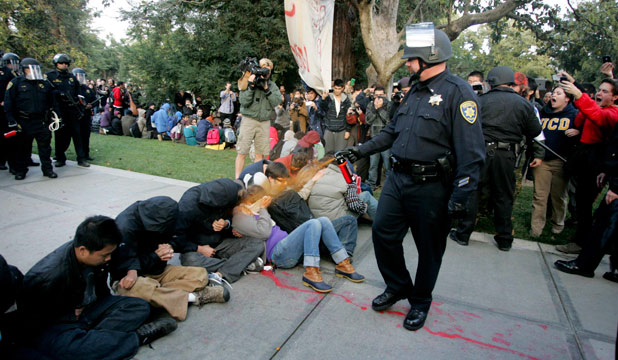S
Solastalgia
Guest
BadNews Bear said:On Tony's list of crimes equal to or greater than PR's, there is a distinct pattern of antisemitic crimes.
Wow, so this is why you believe him to be antisemitic? Do you not understand that he's listing antisemitic crimes because they are similar in nature to Pussy Riot's charges of religious hate crimes. That's the whole point of his list - crimes that are similar to Pussy Riot's that got harsher sentences in the west. That is why he lists antisemitic crimes, not because he is antisemitic himself... If someone was in fact antisemitic, I don't think they would write an article listing antisemitic crimes.
With your logic here, BadNews Bear, every single writer that has ever tackled the subject of antisemitism, is actually (in your view) antisemitic themselves. What kind of backwards brain do you need to believe that?
BadNews Bear said:One in particular strikes me as rather harsh, the second on the list. Tony says "Unlike Pussy Riot, however, these 2 men only crammed their leaflets into the door of a synagogue – instead of bursting in. Still they received 3-4 years in prison."
It's quite apparent that Tony's article clashes with your idea of western justice being superior. The point of his list is to prove that there have been lesser religious hate crimes that have been given harsher sentences in the west. Why did he write this article? Probably because after Pussy Riot got famous, the western media started pushing the idea that the girls would've gotten a lesser sentence in the west. You're obviously one of the people that blindly believes this, considering that throughout this exchange your entire argument has been based on this false assumption.
Making false accusations (especially of antisemitism) and ad hominems against an author because they don't gel with your confirmation bias on Pussy Riot, doesn't make for a good argument. I think you should reconsider your position here...
BadNews Bear said:The leaflets in question were Holocaust denial comics. It struck me a bizarre that Tony sees this as an equal or lesser crime
I would say that someone who expresses their religious contempt using flyers or leaflets, is at less fault than someone who storms a church with an entire rock band.
Before you try telling me that religious hatred had nothing to do with Pussy Riot, let's look at a verse from the song that they played in the church (which you decided to omit from your original post on Pussy Riot lyrics in this thread).
lyrics from:
http://www.freepussyriot.org/content/lyrics-songs-pussy-riot
http://www.pastemagazine.com/articles/2012/08/pussy-riot-lyrics.html
"Shit, shit, the Lord’s shit!
Shit, shit, the Lord’s shit!"
Now, tell me about how there wasn't any religious hatred going on there.
BadNews Bear said:because the whole list dealt with antisemitism I rashly assumed he was an antisemite
This is the most ridiculous logic ever. He clearly titles the list as 'similar crimes' in reference to Pussy Riot's religious hate crimes. How you percieve that as him being antisemitic is beyond me.
BadNews Bear said:and that GR must have antisemitic leanings to print it.
This is even more ridiculous. Any editor with even half a brain reading that article would not come away with the idea that the author is somehow antisemitic.
Last edited by a moderator:

